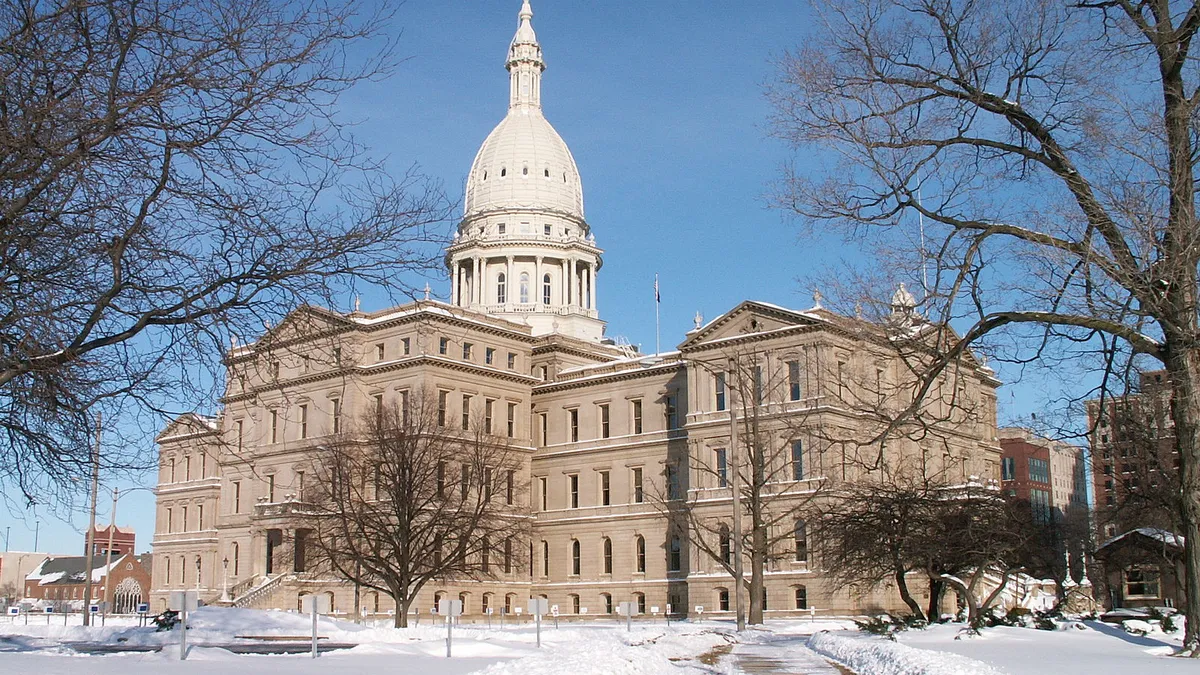Dive Brief:
- A bipartisan group of Michigan lawmakers has introduced a package of five bills aimed at expanding access to renewable energy resources and raising the amount that owners of distributed generation are paid for their excess energy production.
- Republican Rep. Tom Barrett will introduce a measure to eliminate the cap on the number of customers that can participate in a utility's distributed generation program. Another measure would update interconnection standards to allow microgrids to island during grid outages.
- Last month, the Michigan Public Service Commission approved a residential distributed generation billing mechanism designed to replace retail rate net metering. Barrett critiqued that decision and the bills are seen as an attempt by lawmakers to protect consumers' ability to generate their own renewable energy.
Dive Insight:
Among other groups, the bill package would help the state's farmers who have been negatively impacted by the reduced amount of money utilities pay for excess energy.
The bills aim to restore "fair-value pricing" for excess renewable generation sold back to utilities, said Rep. Gary Glenn, R, chairman of Michigan's House Energy Policy Committee.
In addition, “current law places a cap on how many customers can participate in a utility’s distributed generation program,” Barrett said Monday in a statement. “We are quickly outgrowing the arbitrary limit to net metering, and my bill removes that cap."
The new policy would allow more residents, particularly farmers interested in wind and biogas investments, to generate their own power, he said.
The group of five lawmakers who introduced the package have called it the "Energy Freedom legislation." It includes House Bills 5861-5865.
"We must stop recent attempts by the Michigan Public Service Commission and utility monopolies to eliminate competition by homeowners and farmers using solar panels and other means to produce renewable energy,” Glenn said. “This sort of competition from individuals will eventually lower the rates for everyone."
Other sponsors include Democrat Reps. Yousef Rabhi and Scott Dianda and Republican Rep. Steve Johnson.
Johnson introduced a measure described as a "common-sense solution" to change how distributed generators can use their energy. Current law does not allow grid-connected customers in Michigan to go into islanding mode during an outage, he said in a statement.
“We have a lot of power outages in Michigan, and under current law, grid-connected customers who generate their own energy are unnecessarily forced to go dark during utility outages,” Johnson said. The proposal, aimed at critical facilities such as hospitals, would update interconnection standards to enable microgrids to island and operate during grid outages.
Another bill would develop a new pricing structure for distributed generation capable of producing more than 500 kW, particularly aimed at rural areas of the Upper Peninsula.
Lawmakers say they intend to conduct committee hearings on the bills later this month.















